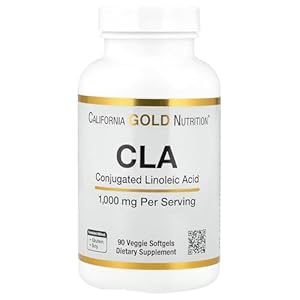
When stress creeps into your life, have you noticed a shift in the way you approach food? It’s intriguing how stress can influence your eating habits, isn’t it? Let’s explore the intricate connection between your emotional state and what ends up on your plate. The impact might surprise you.
Stress-Induced Cravings and Overeating
When stressed, you tend to experience cravings and may overeat as a result. It’s like your body’s way of seeking comfort in food during challenging times. These cravings often lean towards high-fat, high-sugar foods that provide a temporary sense of relief. As stress levels rise, so does the likelihood of turning to these types of indulgent treats.
The urge to overeat when stressed stems from a complex interplay of hormones in your body. Cortisol, known as the stress hormone, can trigger cravings for unhealthy foods. At the same time, stress can dampen your willpower, making it harder to resist the temptation to overindulge.
Moreover, stress-induced overeating can lead to guilt and further exacerbate your emotional state. It becomes a cycle where stress leads to overeating, and overeating leads to more stress. Recognizing this pattern is crucial in finding healthier ways to cope with stress and managing your food choices effectively. By being mindful of these tendencies, you can start to develop strategies to break free from the grip of stress-induced cravings and overeating.
Impact of Stress on Food Choices
Stress significantly influences the types of foods you choose to eat. When stressed, you may find yourself reaching for high-fat, high-sugar comfort foods like ice cream, pizza, or cookies. These foods provide a temporary sense of relief by triggering the brain to release feel-good chemicals like serotonin. However, relying on such foods during times of stress can lead to a cycle of emotional eating.
Conversely, stress can also cause some individuals to lose their appetite altogether. In these cases, people may skip meals or opt for quick, convenient, and often unhealthy options due to a lack of energy or motivation to prepare nutritious meals. This can result in nutrient deficiencies and further exacerbate the effects of stress on the body.
Being mindful of how stress affects your food choices is crucial for maintaining a balanced diet and overall well-being. Finding healthier ways to cope with stress, such as exercise, meditation, or talking to a supportive friend, can help you make more conscious decisions about the foods you consume during challenging times.
Hormonal Changes and Appetite Regulation
Hormonal changes play a crucial role in regulating your appetite and influencing your food intake patterns. When you experience stress, your body releases hormones like cortisol and ghrelin, which can affect your eating habits. Cortisol, known as the stress hormone, can increase your appetite, leading you to crave high-fat and high-sugar foods. This is because cortisol triggers the brain to seek out rewards, often in the form of comfort foods. On the other hand, ghrelin, also known as the hunger hormone, can increase in response to stress, making you feel hungrier and potentially leading to overeating.
Additionally, stress can disrupt the balance of other hormones involved in appetite regulation, such as leptin, which signals feelings of fullness, and insulin, which regulates blood sugar levels. These hormonal changes can create a cycle where stress leads to overeating or unhealthy food choices, which in turn can further exacerbate stress levels. Being aware of how stress affects your hormones and, consequently, your appetite can help you make more mindful choices when it comes to managing stress and maintaining a healthy diet.
Emotional Eating in Response to Stress
Emotional triggers can often lead to mindless snacking or overeating in response to stress. When you’re feeling overwhelmed or anxious, it’s common to turn to food for comfort. This type of emotional eating isn’t driven by physical hunger but rather by a desire to soothe negative feelings.
Stress can disrupt your usual eating patterns, causing you to reach for high-calorie, sugary, or fatty foods as a way to cope. These foods may provide temporary relief, as they can trigger the release of feel-good chemicals in your brain, but the effects are short-lived.
Engaging in emotional eating frequently can contribute to weight gain and have a negative impact on your overall well-being. It’s important to recognize when you’re eating in response to emotions rather than hunger. Finding alternative ways to manage stress, such as practicing mindfulness, exercising, or talking to a friend, can help break the cycle of emotional eating.
Strategies to Manage Stress-Related Eating
When managing stress-related eating, focus on incorporating healthy coping strategies to break the cycle of emotional eating. Start by identifying your triggers and finding alternative activities to food. Engage in physical exercise, as it helps reduce stress and improve mood. Regular exercise can also enhance your overall well-being and self-esteem, making you less prone to stress-related eating.
Practice mindfulness techniques to stay present and avoid impulsive eating. Mindful eating involves paying attention to your food choices, sensations, and hunger cues. By being mindful, you can better regulate your eating habits and make healthier choices.
Establish a routine that includes balanced meals and snacks throughout the day. Avoid skipping meals, as this can lead to increased hunger and potential overeating later on. Plan ahead and have nutritious options readily available to prevent reaching for unhealthy comfort foods when stressed.
Lastly, seek support from friends, family, or a therapist to address the underlying causes of stress and emotional eating. Building a strong support system can provide guidance and encouragement in managing stress-related eating habits effectively.
Diet & Sports Nutrition














